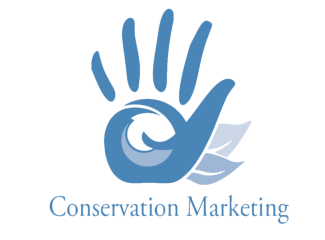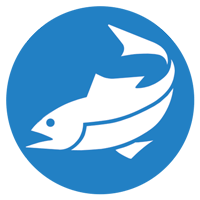
Azura employee Rebecca Ingram attended the Conservation Marketing Virtual Conference in October. The event offered three days of live talks, keynote speeches, and plenty of discussion centered on research that uses social marketing strategies to influence public behavior to help advance environmental conservation goals.
Social marketing is defined as a process that uses traditional marketing principles and techniques to influence citizen behaviors that benefit society as well as the individual. Attendees shared examples of projects that attempted to change behaviors using marketing strategies and human behavior theory. Presenters discussed how to understand and connect to people’s identities, when to use positive or negative messaging, and how to encourage replacement behaviors. Talks were extremely diverse and included the efficacy of Species Days, such as National Polar Bear Day (half of the studied species days showed no impact on species conservation!), how to treat your conservation issue like a “product” you’re selling, and how to build or amplify social norms that support desirable conservation behaviors. This growing field can serve a critical role in conservation and be an interdisciplinary component of future environmental research.
A brief summary of important lessons covered during the Conservation Marketing Conference
~By Rebecca Ingram
The field of social marketing is relatively new, yet it offers immense value in assisting conservation goals and science more broadly. The ConsMark2021 conference held many examples of successful implementation of a broad range of strategies used recently; some of the most useful are described here.
One of the most common strategies I heard in talks was “Know Your Audience”. I found it interesting that so many talks at the conference contained this same highlight/key take-home message despite their diverse topics. There was a plethora of information and advice given on learning about your target audience prior to beginning research, emphasizing how different (and possibly unsuccessful) results can be if this is missed. The importance of defining your target audience is critical to understanding who you are talking to and why you are talking to them. Once you have defined your target audience, you can dig into understanding them by seeking answers to specific questions. How do they spend their time? What do they care about? What gets their attention? What do they know and believe regarding the desired action or objective of the study?
Another large research topic of the conference was, unsurprisingly, changing behavior. Behavioral change is often a desired outcome in social marketing research (and other social science). ConsMark highlighted different ways to think about and attempt behavioral changes. One example used social norm theory to build and amplify desirable social norms, attach desirable behaviors to current social norms, and change social norms if needed in order to change behavior. Another study showed that information dissemination alone was not very effective at changing behavior, but adding a very small amount of one-on-one engagement (e.g., a 30-minute one-on-one Zoom meeting) showed drastic changes in behaviors. It may be costly to include this type of engagement in studies, but with such high potential for achieving the goal, it would be worthwhile!
And finally, if you are trying to save a specific species or a different natural resource, then you are selling a product. It doesn’t always “feel good” to say that, but if we can step away from that uncomfortable feeling, we have a world of marketing science opportunities from which to draw.
A list of resources:
- Free stock photos: https://unsplash.com/
- Research based UX: https://www.nngroup.com/
- Right whale film: https://entangled-film.com/
- Behavior Change for the Environment: https://behavior.rare.org/
- Survey platform: https://www.bimileap.com/home
- Reframing the Ocean: A frameworks guide: https://gulbenkian.pt/uk-branch/publication/reframing-the-ocean-a-frameworks-guide/
- Sunscreen harm awareness: https://oceanservice.noaa.gov/news/sunscreen-corals.html
#ConsMark2021

